12 Hidden Omega-3 Powerhouses Beyond Fish
Omega-3 fatty acids have long been praised for their extensive health benefits, typically associated with fish oil. However, there’s a whole world of omega-3 sources beyond fish that are just as effective and accessible. These foods cater to vegetarians, vegans, and anyone looking for alternative ways to boost their omega-3 intake. Whether it’s plant-based options or fortified products, this article uncovers 12 surprising and nutrient-packed sources of omega-3s. Omega-3s play a crucial role in maintaining heart health, brain function, and reducing inflammation. With alpha-linolenic acid (ALA), eicosapentaenoic acid (EPA), and docosahexaenoic acid (DHA) all offering unique benefits, expanding your diet to include these sources ensures you meet your nutritional needs. Let’s explore 12 omega-3-rich foods that deliver essential nutrients without relying on fish oil.
1. Flaxseeds: The Omega-3 Champion
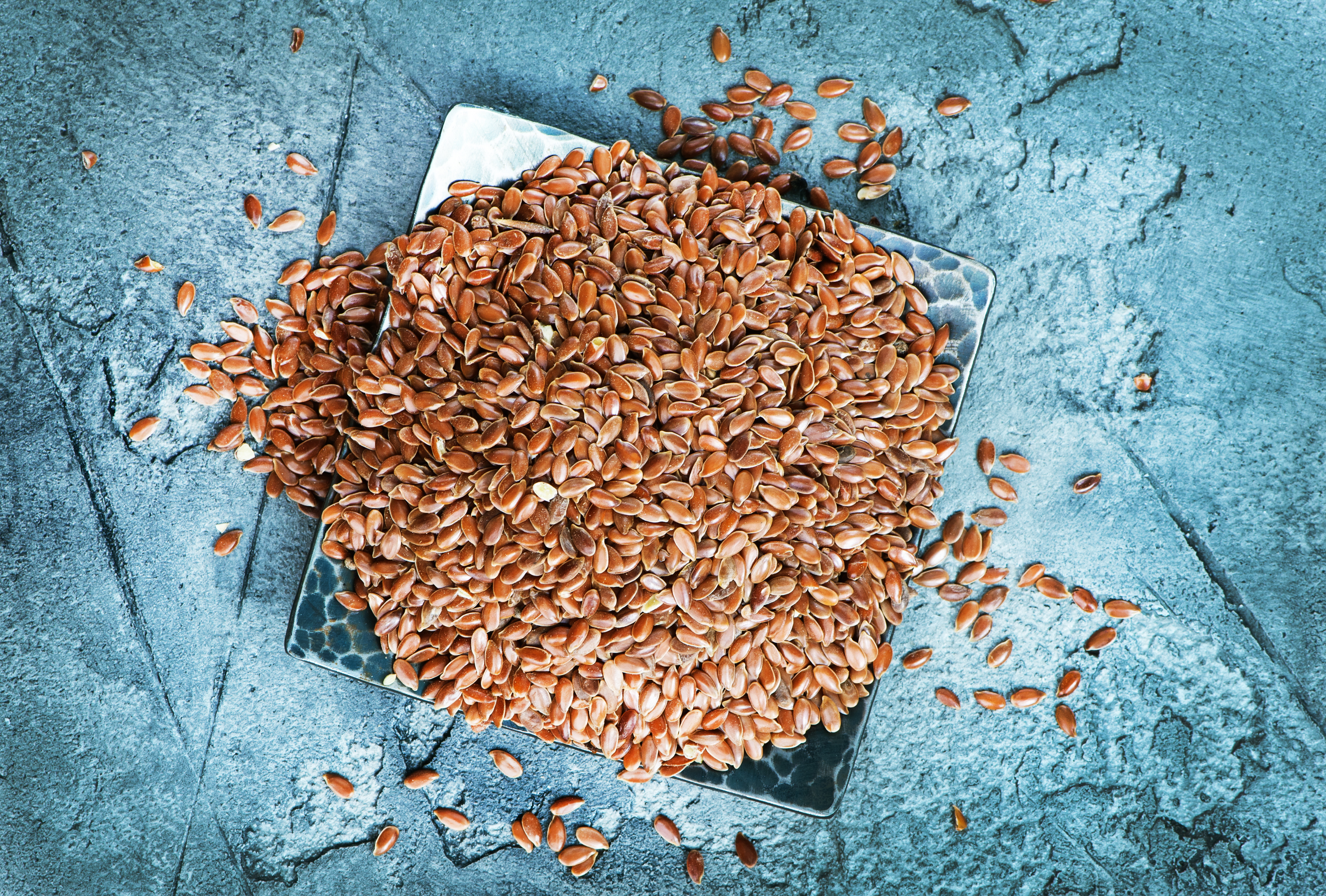
Flaxseeds are among the richest plant-based sources of ALA, the omega-3 fatty acid your body uses to support heart and brain health. Just two tablespoons of ground flaxseeds provide around 4 grams of ALA, making it a top choice for vegetarians and vegans. Rich in fiber and lignans, flaxseeds also support digestion and hormonal balance. To maximize their benefits, consume flaxseeds ground, as whole seeds can pass through the digestive system undigested. Sprinkle them on oatmeal, yogurt, or salads, or mix them into smoothies and baked goods. Their nutty flavor makes them an easy addition to sweet or savory dishes. With their versatility and health benefits, flaxseeds are a simple way to elevate your omega-3 intake.
2. Chia Seeds: Tiny Nutritional Powerhouses
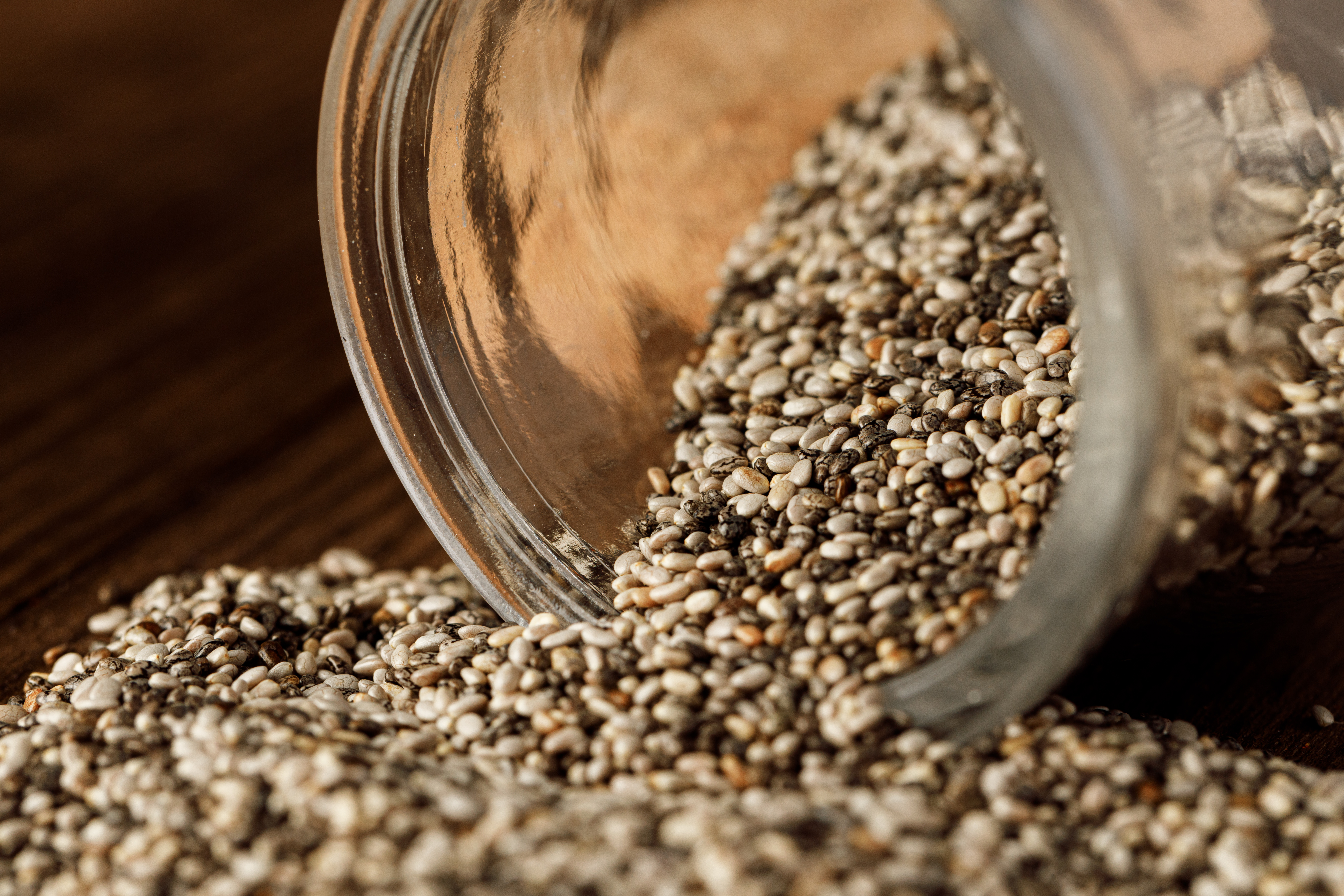
Chia seeds pack a nutritional punch, offering 5 grams of ALA omega-3s per ounce. These tiny seeds also deliver fiber, protein, and antioxidants, making them a superfood in every sense. When soaked in liquid, chia seeds form a gel-like consistency that aids digestion and helps you feel fuller longer. Add chia seeds to your diet by mixing them into puddings, smoothies, or yogurt, or use them as an egg substitute in baking. Their mild flavor makes them a versatile ingredient for both sweet and savory dishes. Whether you’re looking to improve heart health or boost energy levels, chia seeds are an easy and effective addition to your diet.
3. Walnuts: The Brain-Boosting Nut
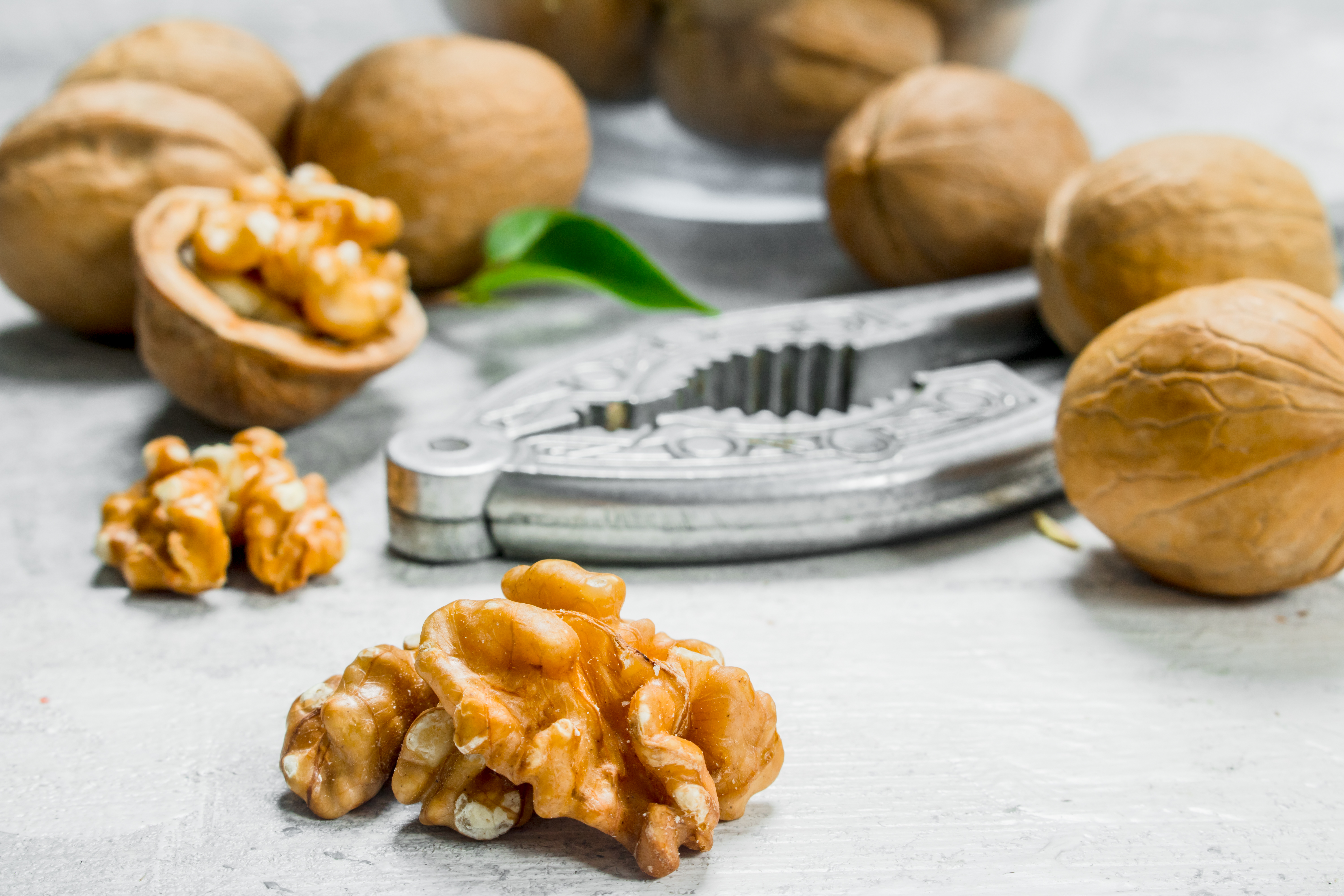
Walnuts are the only tree nut that offers significant amounts of omega-3s, with one ounce providing over 2.5 grams of ALA. They’re also rich in antioxidants, fiber, and healthy fats, making them a heart-healthy snack. Walnuts are often associated with improved brain health due to their omega-3 content and nutrient profile. Enjoy walnuts as a snack, sprinkle them on salads, or incorporate them into baked goods. They also make an excellent topping for oatmeal or yogurt. With their versatility and health benefits, walnuts are a delicious way to support your omega-3 needs.
4. Hemp Seeds: A Balanced Nutritional Profile
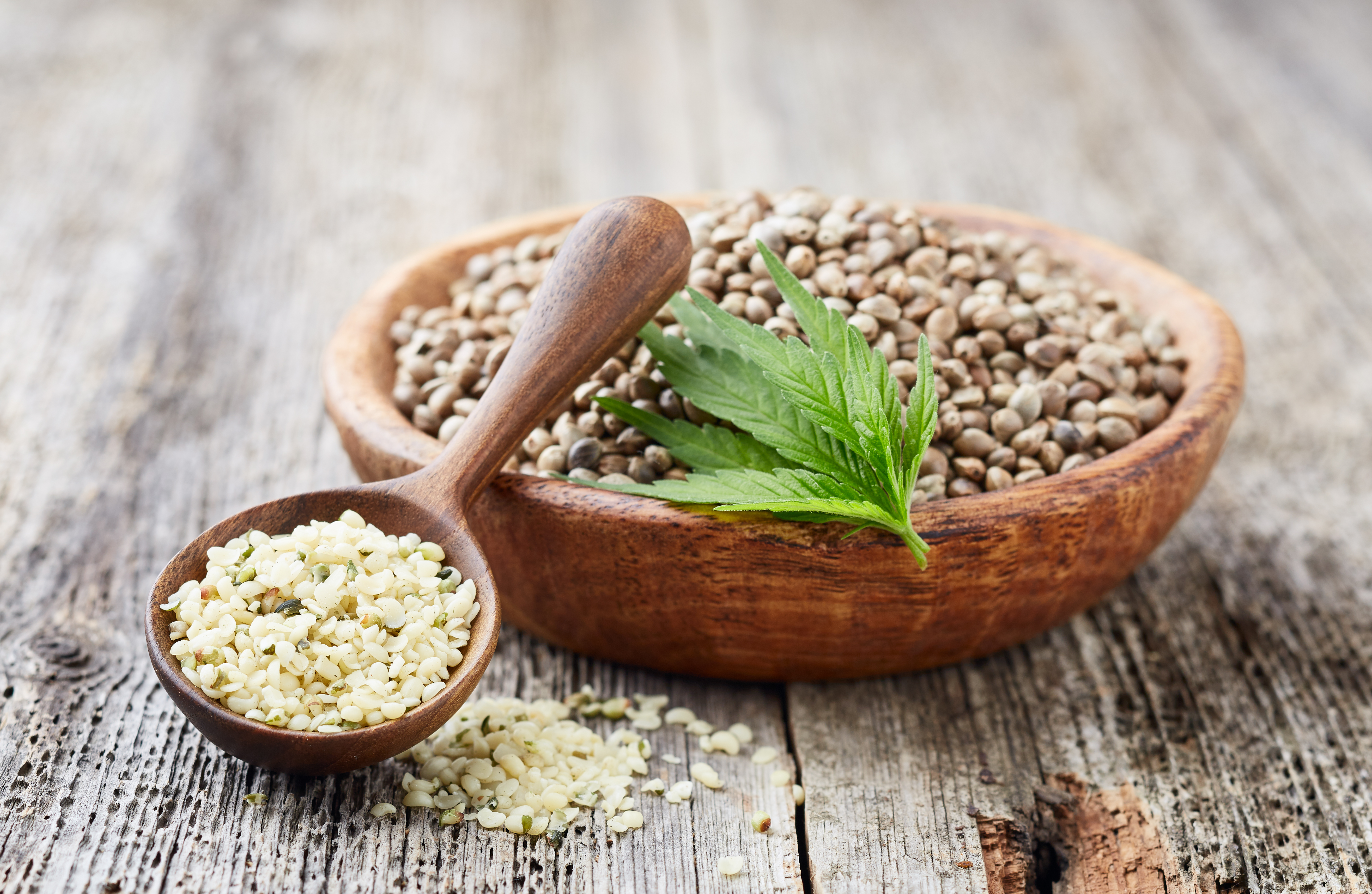
Hemp seeds are a lesser-known omega-3 powerhouse, offering a balanced ratio of omega-3 to omega-6 fatty acids. Three tablespoons provide around 3 grams of ALA, along with protein, magnesium, and iron. Their nutty flavor pairs well with a variety of dishes, making them a versatile ingredient. Add hemp seeds to smoothies, salads, or homemade granola for a nutritional boost. You can also blend them into hemp milk for a dairy-free, omega-3-rich alternative. Perfect for plant-based diets, hemp seeds offer a simple way to meet your daily omega-3 needs.
5. Algae Oil: A Vegan Source of DHA

Algae oil is one of the most potent and sustainable vegan sources of DHA, a critical omega-3 fatty acid essential for brain and eye health. Unlike many plant-based options that primarily offer ALA (alpha-linolenic acid), algae oil is rich in DHA, making it an excellent alternative to fish oil for vegetarians and vegans. Derived from microalgae, it provides a renewable and eco-friendly option without the risk of mercury or other contaminants often found in fish. A single serving of algae oil can supply between 300–400 mg of DHA, meeting daily recommended levels for many individuals. Its neutral flavor and high smoke point make it an incredibly versatile oil for cooking or as a salad dressing base. Additionally, algae oil is available in supplement form for those who prefer capsules. For vegans, vegetarians, or anyone seeking a sustainable omega-3 source, algae oil is a true game-changer for optimal health.
6. Canola Oil: A Kitchen Staple

Canola oil is a budget-friendly and versatile kitchen essential that also happens to be a good source of ALA omega-3 fatty acids. Each tablespoon provides around 1.3 grams of ALA, making it an effortless way to boost your omega-3 intake while cooking or baking. Its mild taste and high smoke point make canola oil ideal for a wide range of culinary applications, from sautéing vegetables to preparing salad dressings and marinades. For maximum health benefits, opt for cold-pressed or organic canola oil, which preserves more of its natural nutrients. While it doesn’t provide DHA or EPA like fish or algae oils, its ALA content can still contribute significantly to your overall omega-3 needs. Canola oil is not only an affordable option but also one that seamlessly integrates into your daily cooking routine, offering heart-healthy benefits with minimal effort.
7. Brussels Sprouts: Omega-3 in a Vegetable
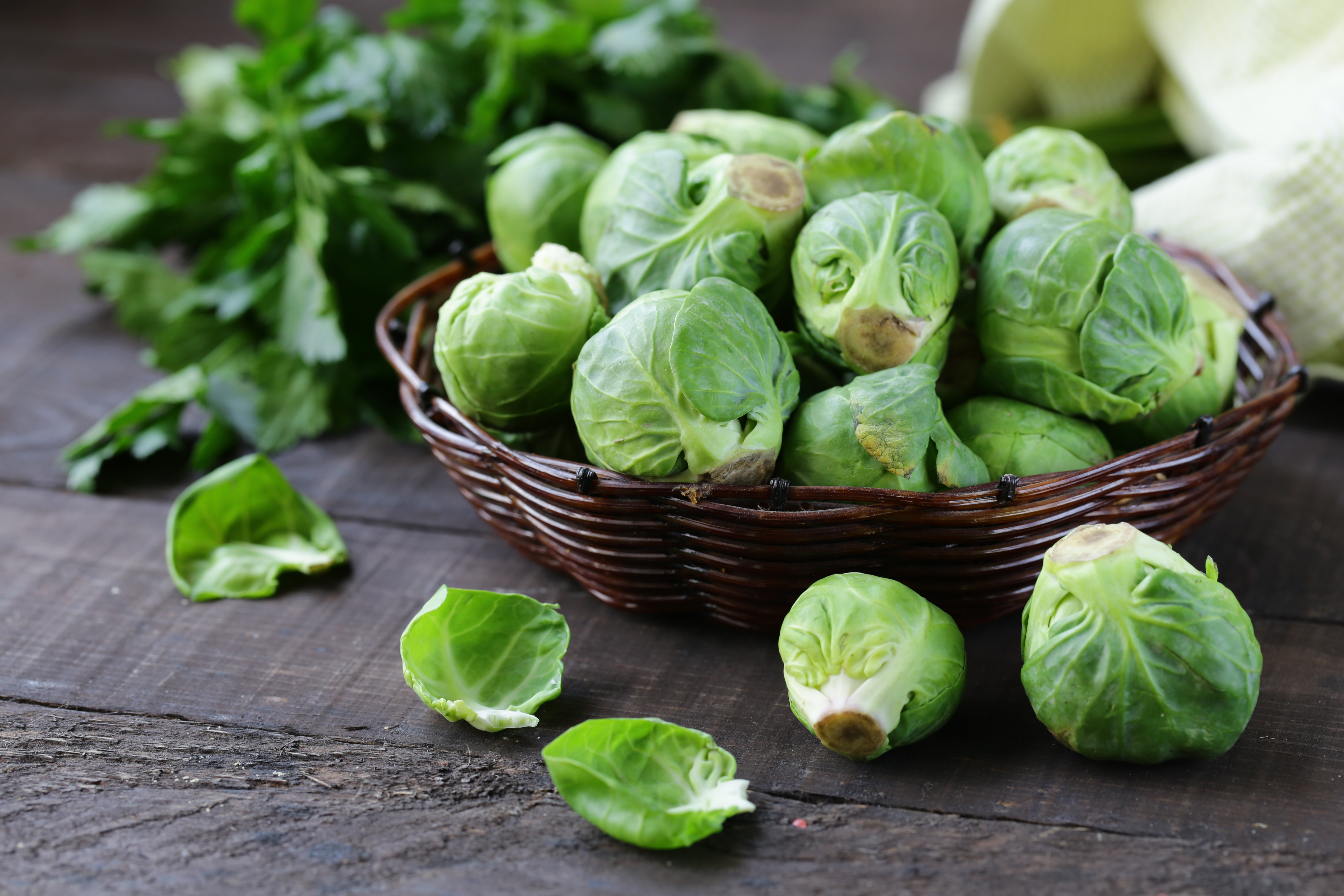
Brussels sprouts are not just a source of fiber and vitamins; they’re also a surprising contributor to your omega-3 intake. One cup of cooked Brussels sprouts provides around 135 mg of ALA omega-3s, along with antioxidants and essential nutrients like vitamin C and vitamin K. These cruciferous vegetables are a nutrient-dense addition to any meal, offering numerous health benefits, including support for cardiovascular and immune health. Roasting Brussels sprouts with olive oil and your favorite spices enhances their nutty flavor, while sautéing them with garlic or tossing them into a salad adds variety to your meals. Brussels sprouts are not only versatile but also a delicious way to incorporate more plant-based omega-3s into your diet. Their ability to pair with a wide range of seasonings and dishes makes them a perfect addition to both weeknight dinners and special occasions.
8. Edamame: A Plant-Based Protein Source
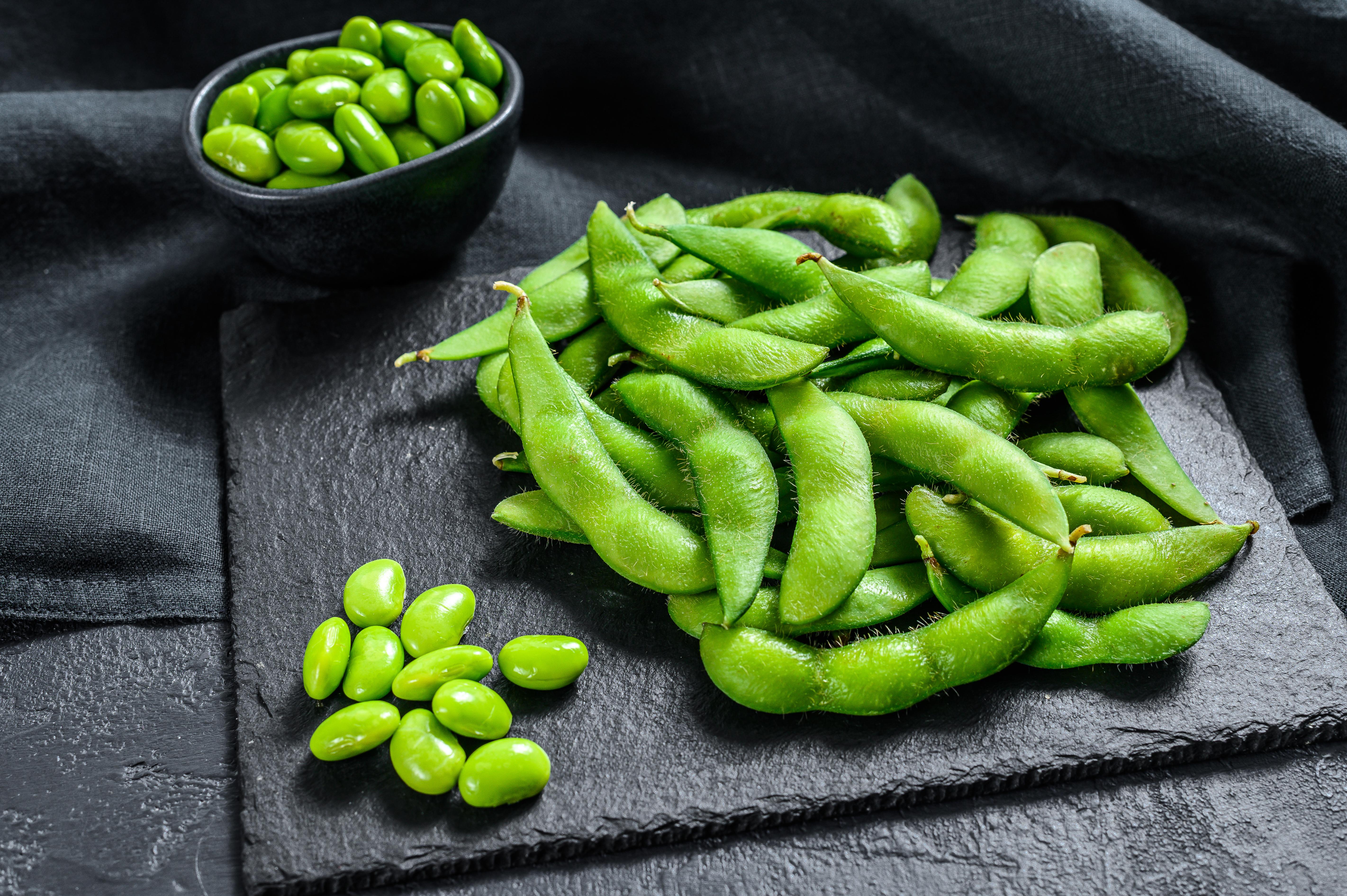
Edamame, or young soybeans, is a plant-based protein powerhouse that also provides a moderate amount of ALA omega-3s. One cup of cooked edamame contains around 300 mg of ALA, along with protein, fiber, and a variety of essential vitamins and minerals. This combination makes it an excellent snack or meal addition for individuals looking to boost their omega-3 intake while maintaining a balanced diet. Steamed edamame with a sprinkle of sea salt is a popular appetizer, but it can also be incorporated into stir-fries, salads, or grain bowls for added texture and nutrition. Its mild flavor complements a variety of dishes, making it a versatile ingredient in plant-based cooking. Whether you’re snacking on it solo or adding it to your favorite recipes, edamame is an easy and delicious way to support your omega-3 goals.
9. Seaweed: Nature’s Omega-3 Gift
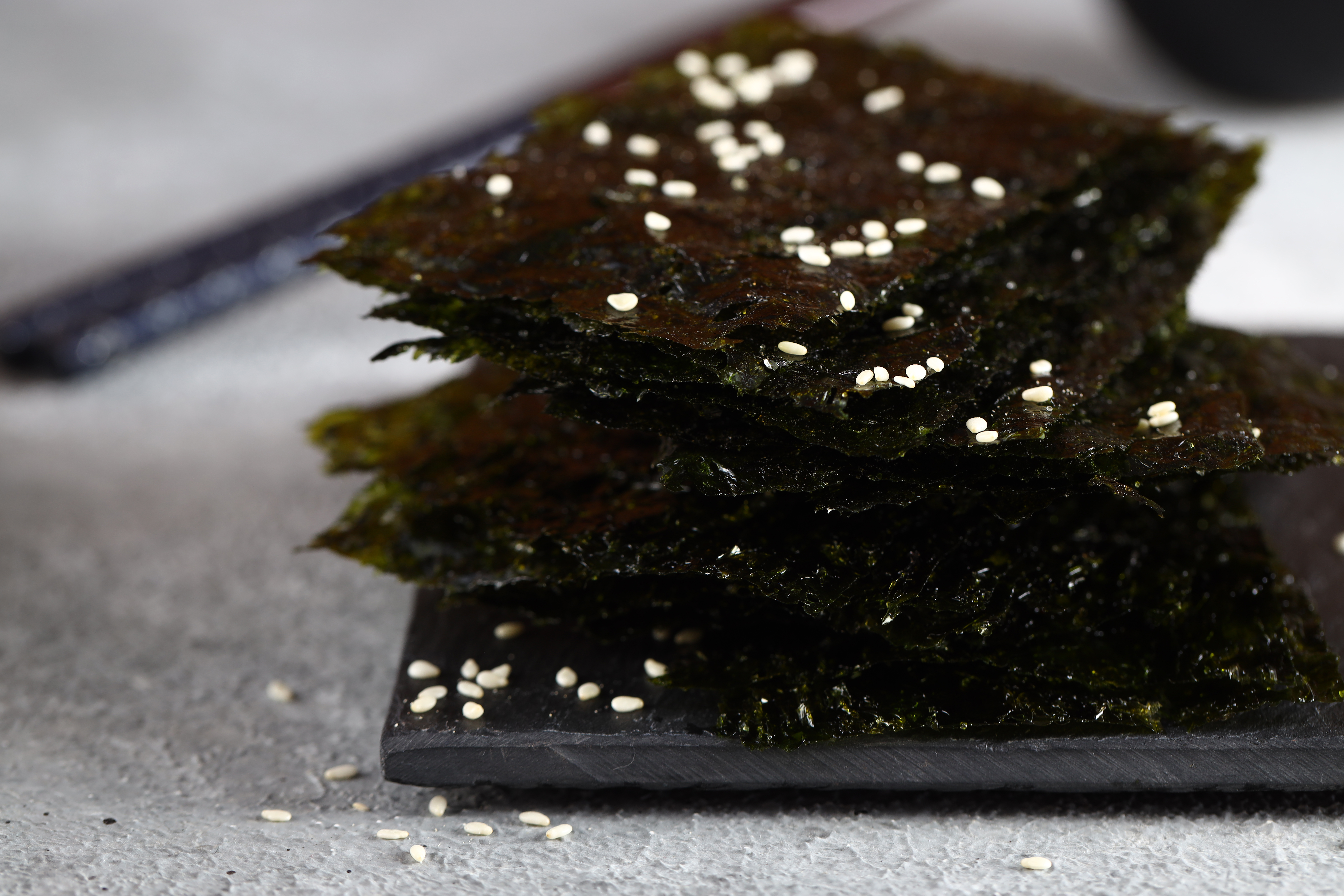
Seaweed is a nutrient-rich food that delivers small amounts of EPA omega-3s, making it one of the few plant-based sources of this essential fatty acid. Varieties such as nori, wakame, and dulse are particularly high in omega-3s, while also providing iodine for thyroid health and a wealth of antioxidants. Seaweed is a low-calorie food that fits seamlessly into many diets, especially for those looking to incorporate more plant-based and sustainable options. Enjoy seaweed as a snack in the form of crispy nori sheets, use it to wrap sushi rolls, or incorporate it into soups and salads for added texture and flavor. Its distinct umami taste enhances a variety of dishes, providing both nutritional value and a unique culinary experience. For those seeking a natural and versatile omega-3 source, seaweed offers an easy and flavorful way to support heart and brain health.
10. Perilla Oil: A Hidden Omega-3 Gem
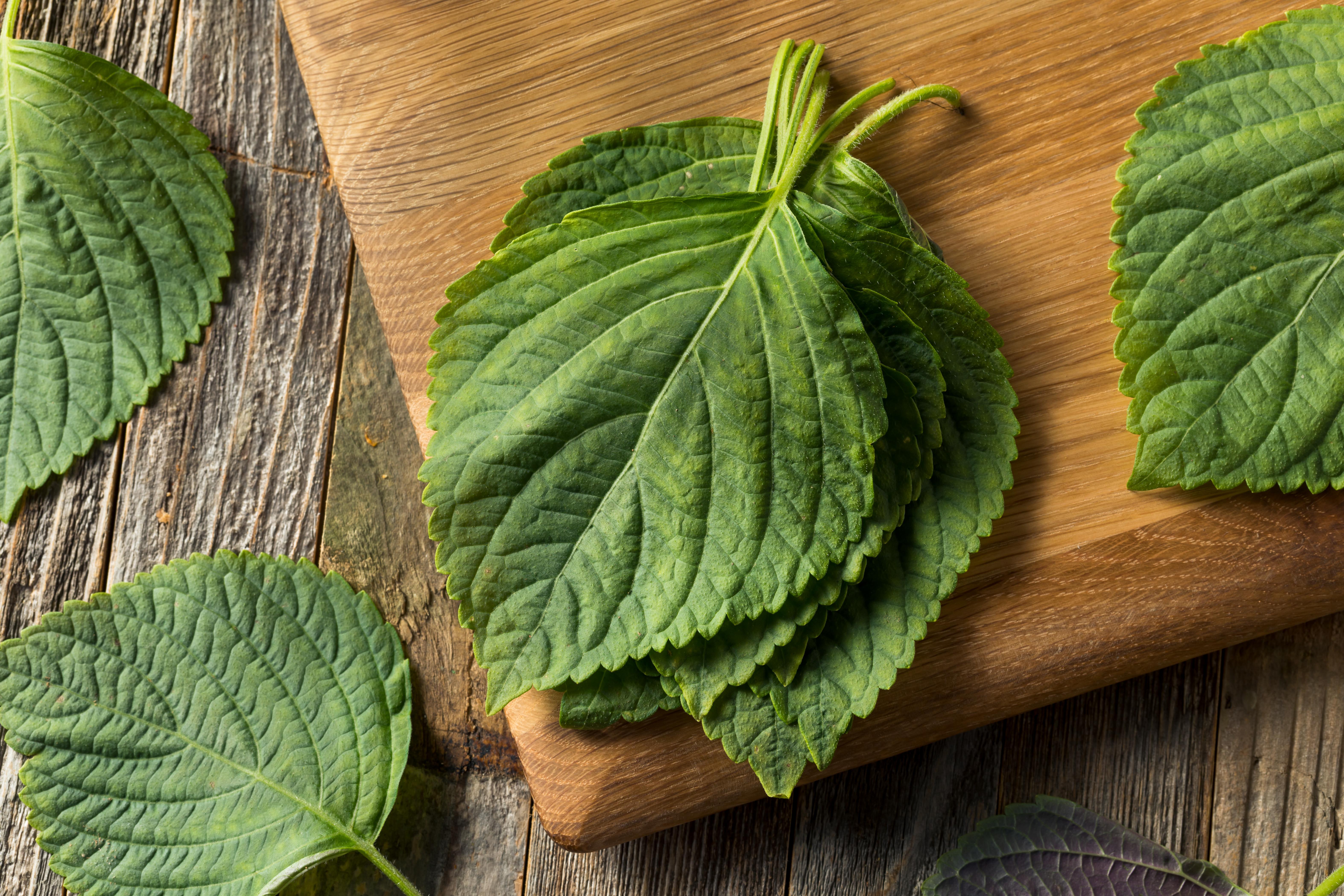
Perilla oil, derived from the seeds of the perilla plant, is a lesser-known yet highly potent source of ALA omega-3s. One tablespoon provides around 9 grams of ALA, making it one of the richest plant-based sources available. Commonly used in Asian cuisine, perilla oil has a distinctive nutty flavor that enhances the taste of a wide range of dishes. Use perilla oil as a finishing touch for soups, marinades, or stir-fries, or incorporate it into salad dressings for a flavorful twist. Its high omega-3 content and unique taste make it a versatile addition to your pantry. For those exploring alternatives to traditional cooking oils, perilla oil offers both exceptional nutrition and culinary appeal, helping to elevate your omega-3 intake effortlessly.
11. Black Walnuts: A Nutrient-Dense Snack

Black walnuts are a unique variety of walnuts with a bold, earthy flavor that sets them apart. Rich in ALA omega-3s, they provide a heart-healthy boost, offering a similar nutritional profile to regular walnuts but with a more intense taste. A single ounce of black walnuts delivers around 2.5 grams of ALA, making them an excellent snack or ingredient for baked goods. Add black walnuts to granola, trail mix, or baked goods like muffins and cookies for a flavorful twist. They also pair well with savory dishes, such as salads or roasted vegetables. Their omega-3 content, combined with their robust flavor, makes black walnuts a versatile and nutrient-packed addition to your diet.
12. Pumpkin Seeds: Small but Mighty
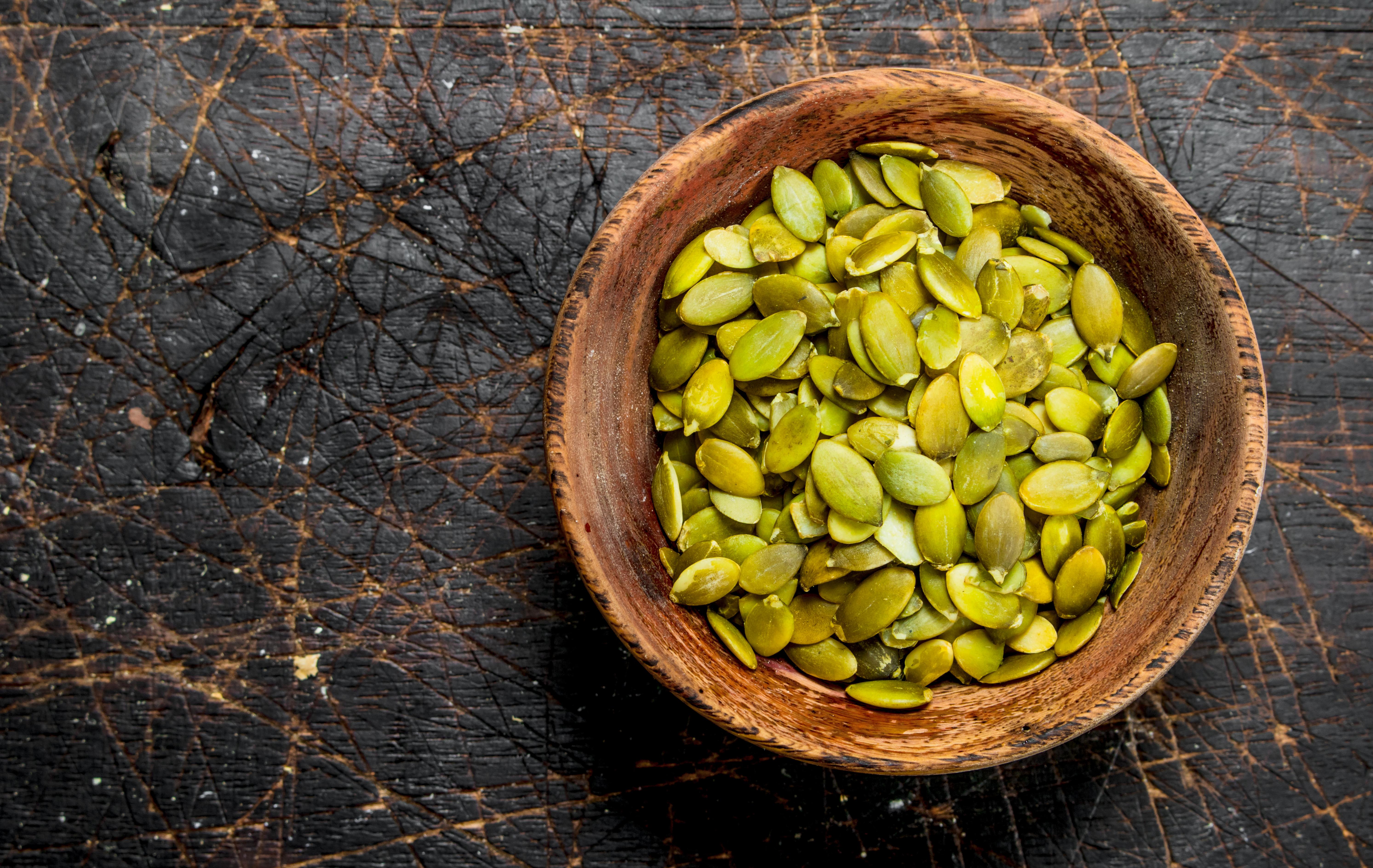
Pumpkin seeds, also known as pepitas, are small but packed with nutritional benefits, including a modest amount of ALA omega-3s. These seeds are also rich in magnesium, zinc, and antioxidants, contributing to heart health and overall well-being. A single ounce of pumpkin seeds contains approximately 50 mg of ALA, along with a healthy dose of protein and fiber. Roast pumpkin seeds with olive oil and spices for a crunchy, flavorful snack, or sprinkle them over salads, soups, or oatmeal for added texture and nutrition. Their versatility makes them a staple in many kitchens, offering a simple way to incorporate omega-3s into your daily meals. Whether as a snack or a garnish, pumpkin seeds are a delicious and convenient way to round out your omega-3 intake.
Conclusion: Expanding Your Omega-3 Horizons

These 12 omega-3 powerhouses beyond fish prove that incorporating these essential fatty acids into your diet is accessible and delicious. From seeds and nuts to oils and vegetables, these sources cater to diverse dietary preferences while offering significant health benefits. By exploring these alternatives, you can enrich your diet, support heart and brain health, and make sustainable choices for the planet. The world of omega-3s is vast—embrace it and enjoy the journey to better health!
